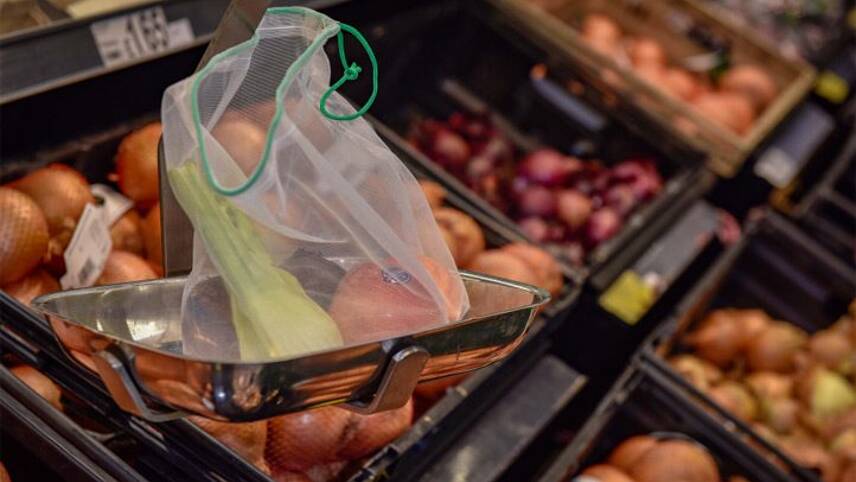Register for free and continue reading
Join our growing army of changemakers and get unlimited access to our premium content

Asda is striving to use 15% less plastic across own-brand lines in 2021 than it did in 2017
The reusable alternative produce bags, made using recycled plastic bottles, will be offered to shoppers for 30p at nine Asda stores from Monday (7 September). At the same stores, single-use bags will be removed from aisles.
Stores included in the trial are Middleton, Killingbeck, Swansea, Bridgend, Glasshoughton, Quedgeley, Harrogate, York Layerthorpe and the York Superstore.
Should the trial prove successful, Asda will explore the possibility of offering the reusable bags in – and removing the single-use plastic bags from – more stores. It estimates that a roll-out could prevent the use of more than 3.5 million bags per year, collectively weighing in at more than 141 tonnes.
Asda’s director of produce Kevin Patel called the trial “a really exciting step” on Asda’s journey to reduce the amount of plastic it uses across its own-brand offerings by 15% by 2021, against a 2017 baseline.
The supermarket’s wider plastics strategy is rooted in WRAP’s UK Plastics Pact, which sets four main minimum requirements on signatories against a 2025 deadline. It binds signatories to eliminating unnecessary single-use packaging through redesign; making all plastic packaging 100% reusable, recyclable or compostable; achieving recycling and composting rates of 70% or more for packaging, and including 30% recycled content across all packaging.
The steaks are high
In related news, Aldi has confirmed plans to roll out cardboard packaging across its entire steak range and to list products housed in the innovative new packaging format in all 890 of its UK stores.
The new packaging consists of a cardboard tray and a thin, clear, flexible plastic film to hold the meat in place. While the film itself is not recyclable, the cardboard is collected by all UK local authorities and the entire package contains up to 90% less plastic than traditional formats.
Aldi UK has calculated that the switch will reduce its plastic footprint by 1,100 tonnes annually. Trials of the new packaging, conducted in the second half of 2019, proved that it did not affect product shelf-life or quality and that consumers found it easy to use.
“It can be challenging to balance tackling food waste with the need to reduce the amount of plastic we use, particularly with fresh meat, but this successful trial has shown us that this new packaging enables us to do both,” Aldi UK’s managing director of CR Luke Peech said.
The move forms part of Aldi’s commitment to halve the volume of plastic packaging it uses in the UK and Ireland annually by 2025 – a move which will mitigate the distribution of two billion pieces of plastic over the coming years.
Aldi has already removed more than 6,000 tonnes of plastic packaging from products, including flexible sleeves on multipack tins, expanded polystyrene pizza bases and fruit and vegetable multipacks. It has also written to third-party suppliers, warning that they will be delisted unless they align with the supermarket’s 2025 plastics packaging commitments.
The new commitments from Aldi and Asda come in the same week as a major new report revealing that the global production of virgin plastic could peak as soon as 2027, as governments set stricter resources and climate policies and as consumers continue to demand more sustainable products.
Sarah George


Please login or Register to leave a comment.